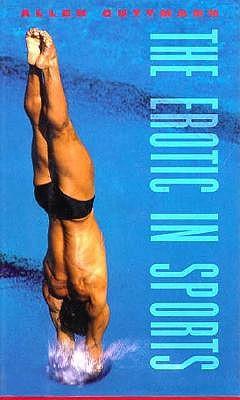Full Product Details
Author: Allen Guttmann
Publisher: Columbia University Press
Imprint: Columbia University Press
Dimensions:
Width: 22.00cm
, Height: 2.20cm
, Length: 14.50cm
Weight: 0.496kg
ISBN: 9780231105569
ISBN 10: 0231105568
Pages: 232
Publication Date: 04 September 1996
Audience:
Professional and scholarly
,
Professional & Vocational
Format: Hardback
Publisher's Status: Active
Availability: Out of stock

The supplier is temporarily out of stock of this item. It will be ordered for you on backorder and shipped when it becomes available.
Language: English
Reviews
A scholarly, often lively... treatise that suggests that 'there is an inherent erotic element' in sports and that we should be candid about it, as were the ancient Greeks.... As an opening sally in a much-needed debate, this bears reading. -- Kirkus Reviews
"""A scholarly, often lively... treatise that suggests that 'there is an inherent erotic element' in sports and that we should be candid about it, as were the ancient Greeks.... As an opening sally in a much-needed debate, this bears reading."" -- ""Kirkus Reviews"""
A scholarly, often lively if inconclusive treatise that suggests that there is an inherent erotic element in sports and that we should be candid about it, as were the ancient Greeks. Guttmann (A Whole New Ballgame, 1988, etc.) examines the Panhellenic sports festivals and the Greek gymnasiums for their erotic ambience and looks at Rome via Ovid and Juvenal, whose writings on the gladiators reveal that aristocratic women . . . found male athletes sexually irresistible. His discovery of the erotic in the tournaments of the Middle Ages is a little more ill-defined, as Guttmann assumes a relationship between feats of arms and the code of courtly love. Women, he notes, were both spectators and prizes. Guttmann then takes a look at a few writers who, like the French novelist Henry de Montherlant, unabashedly celebrated 'the sensuality and eroticism' of sports. Hemingway, in The Sun Also Rises, left it to his readers to infer the presence of eros from the nuances of his prose. He peruses a few films, most notably Raging Bull (the fight scenes, Guttmann says, are instances of erectile pride ) and Leni Riefenstahl's Olympia: There is no more erotic sports film than Olympia, writes Guttmann; he lamely attempts to defend her numbness to Hitler's horrors by stating that the fault was in her lack of political awareness and not in her love of powerful bodies. He concludes with a well-conceived debate with the Freudians, nco-Marxists, and radical feminists and finds himself most in agreement with the latter, though he argues that sports voyeurism, the appreciation of scantily clad, well-muscled athletes, should not be subjected to the same level of criticism as pornography or the pseudo-erotica of exploitative ads. As an opening sally in a much-needed debate, this bears reading. But it's not always clear what Guttmann is arguing for or against. (Kirkus Reviews)




